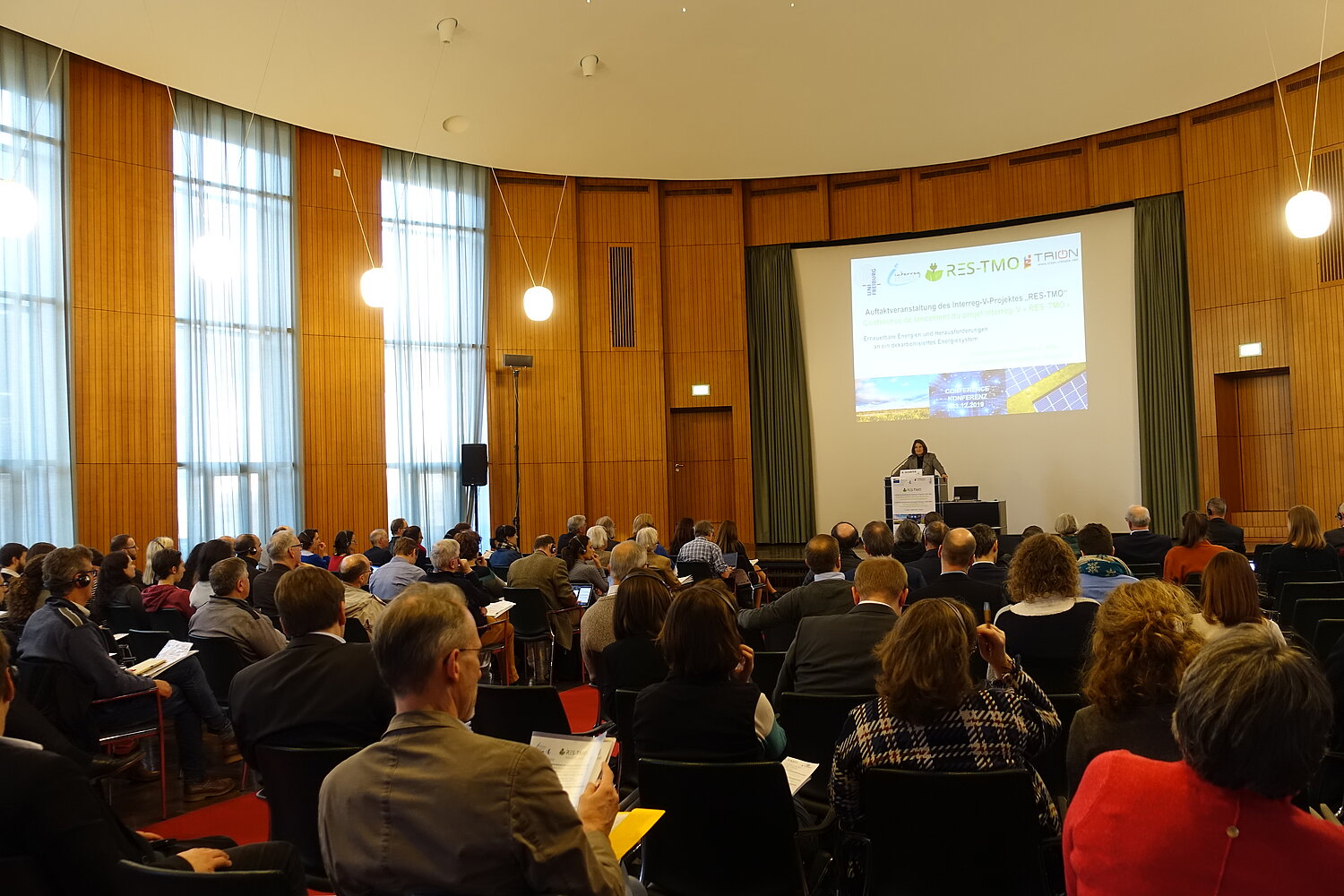The RES-TMO project celebrated its official opening on 3 December 2019 in the Aula of the University of Freiburg with welcoming speeches by Rector Prof. Hans-Jochen Schiewer and Ms. Bärbel Schäfer from the Freiburg Regional Council as well as numerous expert presentations. The opening event was organized by the project coordination office of the University of Freiburg together with the trinational network of energy and climate actors in the Upper Rhine, TRION-climate e.V. Ms Vulla Parasote, managing director of TRION-climate, and Ms Ines Gavrilut, project coordinator, moderated the event. Over 130 representatives from science, politics, industry and civil society attended the event.
After the general project presentation by Prof. Barbara Koch, the project leader, key aspects of energy systems decarbonization were addressed by experts from research and industry from Germany and France in a series of inspiring presentations followed by Q&A sessions. Ms Parasote introduced the results of the trinational comparative study on the implementation of climate and energy goals in the Upper Rhine Region, which was prepared by the TRION-climate office on behalf of the DE-FR-CH Upper Rhine Conference within the framework of RES-TMO. Mr Moritz Schillinger of the SCCER-CREST Swiss Competence Center for Research in Energy, Society and Transition gave a talk on the role and future of hydropower in Europe. Mr. David Eyler from EIFER-European Institute For Energy Research provided an overview of the potential of photovoltaics, biomass and wind energy in our border region Upper Rhine. Dr. Dogan Keles from the Institute for Industrial Production (IIP) of the KIT presented the main research results of the DESK project on energy system decarbonization, sector coupling and security of supply in Southern Germany. Mr. Jean Luc Delbosc of ENEDIS discussed the use of smart grids and smart meters as well as their advantages and potentials. Dr. Tobias Weißbach of TransnetBW (associated project partner) discussed grid stability with high shares of volatile renewable energy. Finally, Mr. Peter Majer of Badenova (co-financing project partner) dedicated his presentation to the topic of business models for the generation and consumption of photovoltaic electricity and the challenges that come with them.
As a key take-away, it became clear that there is no one way, one technology or "one size fits all" solution but many different “energy decarbonization ways” on multiple levels. While technologies are only part of the solution, there are several elements which are key to achieving climate goals in the energy sector. These include:
- flexible generation capacities such as hydropower remain key sources of flexibility for an energy system based on renewables, however their future depends on highly uncertain factors such as market and policy developments and climate change.
- regional-national-supranational energy transitions need coordination and further development of national and cross-border infrastructures as well as implementing connectivities at different levels: connection of control areas/regions, market coupling (connection of markets), vertical connection of voltage levels, sector coupling (electricity, heating, transport).
- empowering prosumers and citizen initiatives on renewable energy is also key, notably through effective regulations and business models that provide appropriate incentives while reducing as much as possible bureaucratic, financial and other burdens.
